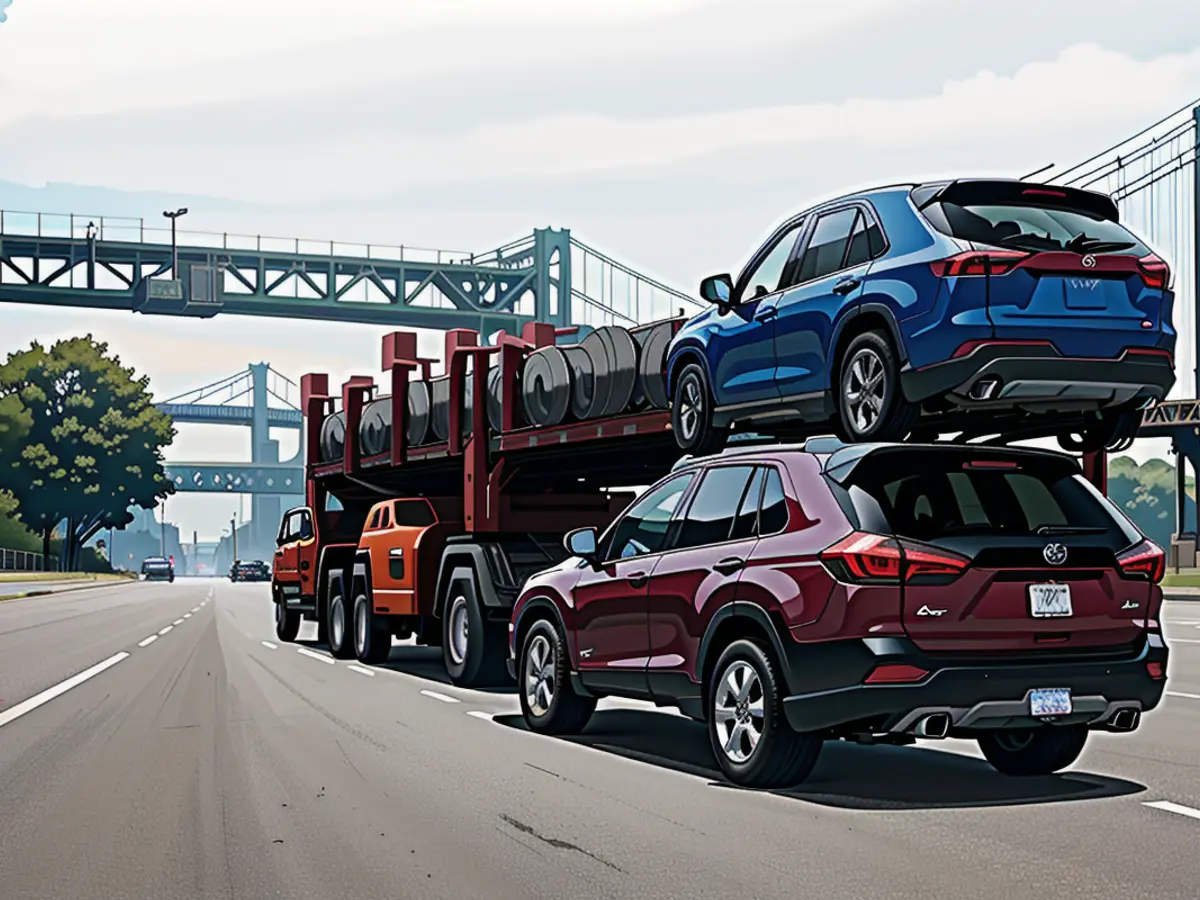Trump publicly criticizes the Wall Street Journal following persistently negative coverage on tariffs.
Trump took aim at a Wednesday editorial in the Journal that suggested his proposed tariffs on imports from Canada and Mexico could harm auto-heavy Michigan. The editorial rightfully noted that all vehicles assembled in Michigan use parts imported from Mexico and Canada, with studies predicting a $9,000 increase for full-size SUVs and $8,000 for pickup trucks if assembly plants remain in the U.S.
Trump disagreed with these estimates in a Truth Social post, making several false claims about the tariffs. He asserted that they would drive auto manufacturing to Michigan and prevent new plants from being built in other countries. However, the threat of tariffs has not altered any automaker's plans so far, and no production has shifted back to Michigan.
With free-trade agreements between the United States, Canada, and Mexico, the automotive industry has long operated as if North America is a single market. Despite Trump's post, there have been no reports of automakers abandoning plans to build plants in Canada, Mexico, or other countries.
Stellantis, which makes vehicles under the Jeep, Ram, Dodge, and Chrysler brands, announced plans to restart production at a closed plant in Belvidere, Illinois. However, this decision was made as part of a 2023 labor agreement with the United Auto Workers union, not in response to Trump's tariff threats.
General Motors CFO Paul Jacobson indicated that long-term tariffs could force automakers to re-evaluate their manufacturing footprint in North America. But he emphasized that they wouldn't make such a move quickly or lightly.
Tariffs on imports from Canada and Mexico could have significant economic impacts, including increased costs, supply chain disruptions, job losses, and potential retaliation from the affected countries. The long-term consequences could be devastating for the industry and Michigan's economy.
Trump and the Journal editorial pages have previously clashed on tariffs. In January, the Journal called the Canadian and Mexican tariffs proposal "the dumbest trade war in history." Trump responded, saying he would speak to the Journal's owner, Rupert Murdoch, regarding the editorial.
Trump argued that his proposed tariffs on imports from Canada and Mexico could actually encourage more auto manufacturing to occur in business-friendly Michigan. Despite his assertions, no automakers have altered their production plans in response to the tariff threats thus far. The long-term impact of such tariffs on the automotive industry and Michigan's economy could be significant, potentially leading to increased costs, supply chain disruptions, job losses, and potential retaliation from Canada and Mexico.









